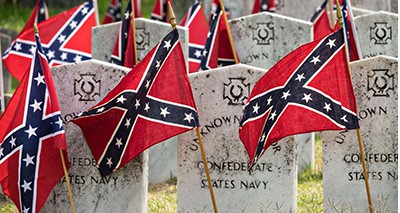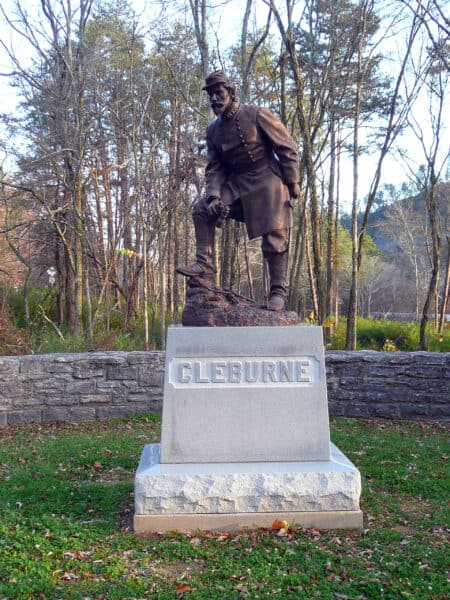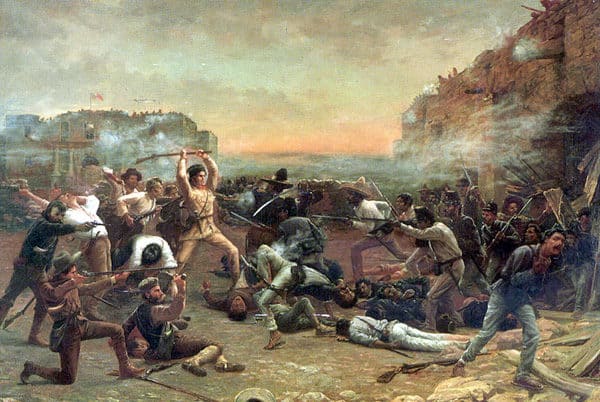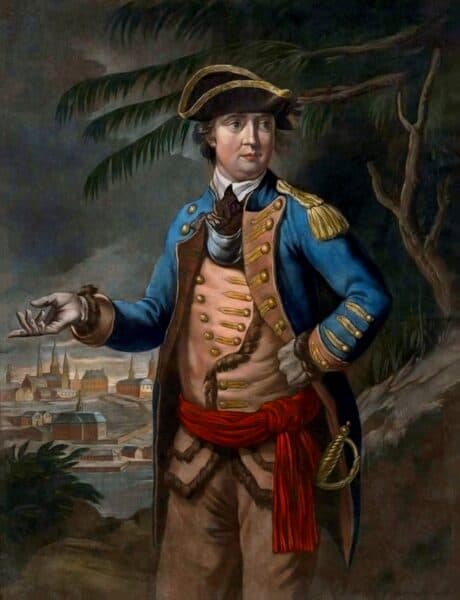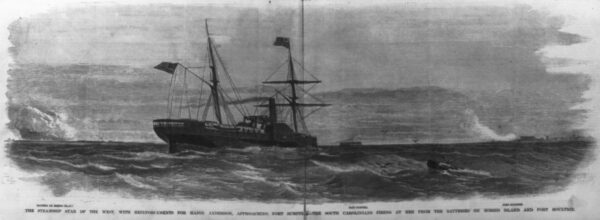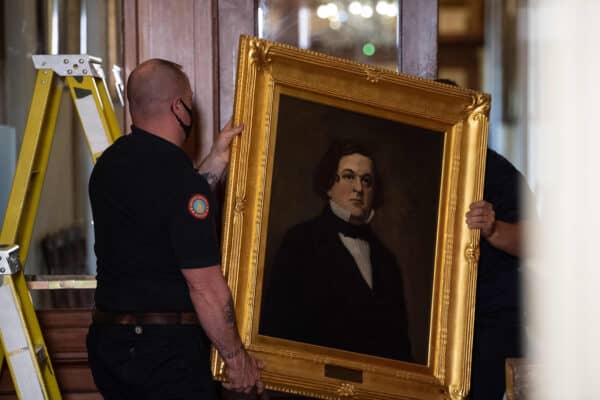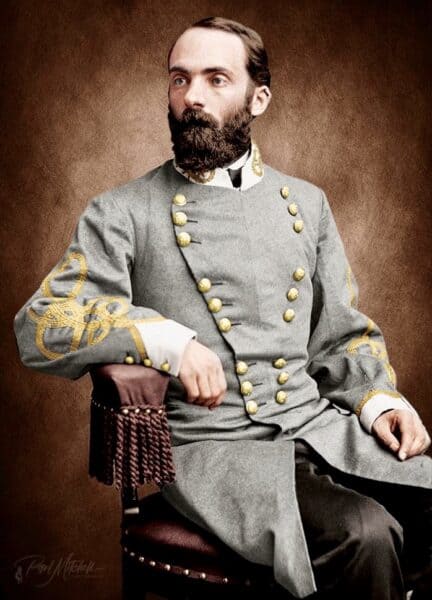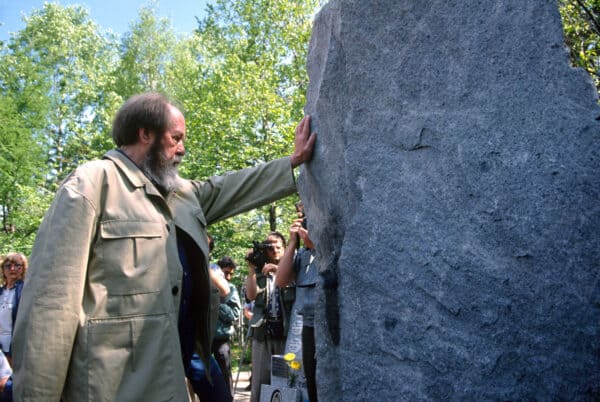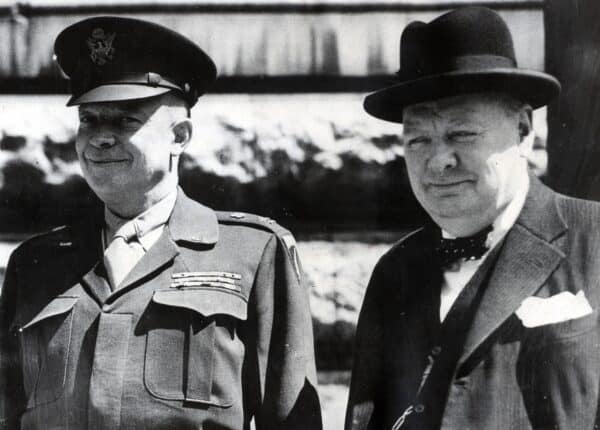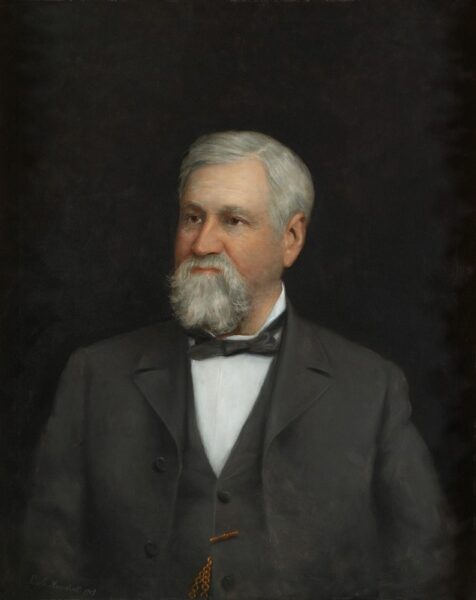Credit Image: © Richard Ellis/ZUMA Wire
These remarks were given at the annual National Confederate Memorial Day service, Stone Mountain Memorial Park, Stone Mountain, Georgia on April 30, 2022.
Thank you for taking time today to consider the deeds and lessons of our ancestors.
When Confederate commemoration began, it was as a memorial to people who were known to the living. Today, it is unlikely that there is anyone here who knew an actual Confederate veteran. The last verified Confederate died in 1951.
In a way, that is a greater compliment to you than those who were acquainted with those soldiers, sailors and marines who served the Confederacy. You love the ancestors you never knew and you admire their struggles and sacrifices.
But, within the memory of many of those present today, was a time when the national culture embraced and venerated the Confederate experience.
Today that culture is shifting — and not in favor of remembrance. Celebrations and memorial services such as this one are met more and more with not mere indifference, but hostility. One cannot deny the malicious influence of the education (should I say indoctrination?) system and the reigning culture of the media and entertainment industry.
In almost any television show or movie today, if you see a Confederate emblem, you know that you are looking at a murderer or a nut case.
It is not merely the Confederacy that is besieged. The traditional American nation is under intellectual assault. Columbus, Washington, Jefferson, Madison, et al., are repudiated in the academy and by pop “culture.” Monuments to almost every period and person — except the momentary heroes of the present — have been vandalized, destroyed, or removed. Monuments that remain are often desecrated by “interpretive” plaques to ensure that orthodoxy always be chanted by the obedient.
In the 2021 Georgia General Assembly, for example, we were faced with a bill that would:
[P]rohibit the display of monuments, memorials, plaques, markers, or memorabilia related to the Confederate States of America, slave owners, or persons advocating for slavery on public property except for museums and Civil War battlefields.
That would cover 12 of the first 18 presidents of the United States. Even “Honest Abe” is under attack for failing to spare enough duly convicted Sioux and championing the Pacific railroad, now seen as cultural aggression against “native Americans.”
On January 2, 1864, General Patrick Cleburne wrote about the consequences if the South lost the war:
It means that the history of this heroic struggle will be written by the enemy; that our youth will be trained by Northern school teachers; will learn from Northern school books their version of the war; will be impressed by all the influences of history and education to regard our gallant dead as traitors, our maimed veterans as fit objects for derision. It means the crushing of Southern manhood, the hatred of our former slaves, who will, on a spy system, be our secret police. The conqueror’s policy is to divide the conquered into factions and stir up animosity among them . . . .1
I therefore thank you all the more for coming out to affirm the positive ideals of our ancestors and rejecting the tidal wave of abuse heaped up their memory. Let us consider some of the weapons used against our ancestors. I will take up three: losing, treason, and Nazism.
Statue of Confederate General Patrick Cleburne in Ringgold, Georgia. (Credit Image: Hlj via Wikimedia)
Americans do love winners and sometimes people state as absolute fact that nobody honors losers. Let me educate the ignorant.
In Judea, at the Battle of Masada (73–74 AD), every man, woman and child was either killed by the Romans or committed suicide. Jerusalem had been sacked and pillaged, and the nation went on to complete domination by Rome. Yet today, the Israeli Defense Force swears in its officers at the site of this disaster. Israel remembers.
Ireland and Scotland are filled with monuments to failed independence efforts. Songs and stories abound. Braveheart told for American audiences the story of the defeat and execution of William Wallace. The Irish and the Scots remember.
Winston Churchill used to place an obituary every year on the anniversary of the battle of Hastings to mark the death of Harold, the last Saxon king and subsequent conquest of the Normans.
Let me turn to perhaps the greatest loser of all times. He had his nation completely conquered not once, but twice. I speak of the Emperor Napoleon. Yet Paris is more his city than that of any other man or woman. French officers are sworn in at his tomb. France remembers.
Nor do we think that Christ lost because he died on the cross.
Finally, let us make an American reference. Yes, we remember the Alamo. To state that we cannot honor losers simply validates the saying that might makes right.
“The Fall of the Alamo” (ca 1903) by Robert Jenkins Onderdonk.
Our cultural arbiters routinely refer to Confederates as “traitors.” The Elizabethan English writer and courtier John Harington observed:
Treason doth never prosper?/What’s the Reason?/For if it prosper none dare call it treason.
Treason is the only crime defined in the United States Constitution. It “shall consist only in levying War against them [the United States], or in adhering to their Enemies, giving them Aid and Comfort.” Traditionally, it was very narrowly defined to reduce the tendency of British monarchs to crush their foes with broad-brush charge of treason.
In 1790, the Congress decreed that the mandatory punishment for treason would be death. No other punishment was named. This was the law in effect in 1861. If the Confederates were traitors, then several hundred thousand — if not millions — of Southern men and women would have been subject to execution.
But the Federal Congress in 1861 apparently did not view “insurrection” and “rebellion” as treason. On July 31, 1861, Congress set the penalty for conspiracy to overthrow the United States government or interfere with the operation of its laws as a “high crime” subject to a fine of not less than $500 and not more than $5,000 or (note: not and) imprisonment of not more than six years. The Federal Congress and the Lincoln administration clearly saw a difference between treason and “insurrection” or “rebellion.”
Since the time of the Middle Ages, subjects of a realm have been permitted to “abjure the realm.” Today we call this renouncing citizenship. If you buy a firearm, the Bureau of Alcohol, Tobacco, Firearms and Explosives wants to know if you have ever renounced your citizenship.
I think we can safely say that by resigning from the United States Army and then swearing an oath of allegiance to the Confederate States of America and joining the Confederate Army, Confederates clearly “abjured the realm” and renounced their citizenship.
Treason is betraying one’s own country. Benedict Arnold and Alger Hiss come to mind. A non-citizen cannot betray another country. For example, I cannot “betray” Mexico or Poland.
Benedict Arnold
No Confederate was ever tried for treason after the war. Jefferson Davis eagerly looked forward to being tried for treason in order to vindicate in the courthouse the Confederate cause that was lost on the battlefields. Salmon P. Chase, Lincoln’s choice for Chief Justice of the Supreme Court, has been quoted as having said that no prosecution for treason would be successful against Jefferson Davis.2
Here is an argument about secession that is never heard today.3 The Articles of Confederation were supposed to govern a “perpetual union.” When the 12 states met for the Constitutional Convention — Rhode Island refused to attend — the new constitution to replace the Articles did not say it was to be perpetual. It is a rule of legal construction that when such a change is made, we presume the drafters — many of whom had helped write the Articles of Confederation — deliberately left out the reference to a “perpetual union.”
The new Constitution became effective upon the ratification of only nine states. (See Article VII.) A new nation could have been formed and left four states out in the cold. Thus, the Constitution was a secession from the Articles of Confederation since 12 of the 13 states left the “perpetual union.” Rhode Island did not join the new Union until it was threatened with trade sanctions. It ratified the Constitution only after the first Congress had begun deliberations.
But was secession treason? Let us briefly review the events following secession.
In South Carolina, the cadets of the Citadel, on January 9, 1861, months before Fort Sumter was bombarded, fired on the steamship Star of the West and prevented it from resupplying the Fort.
The steamship Star of the West, with reinforcements for Major Anderson, approaching Fort Sumter – The South Carolinians firing at her from the batteries on Morris Island and Fort Moultrie.
The Southern states passed, through very public and publicized events (such as conventions, legislative sessions and referenda) ordinances of secession. The Confederate States held a convention in Montgomery establishing a new government and a constitution. The new President took an oath on the Alabama capitol steps. A new flag was created. Military forces were raised, new uniforms created, and arms procured by both purchase and confiscation. Military posts of the United States were occupied, and United States troops returned to Northern states. The rudiments of a new Navy were begun. The Confederate military men and civilian office holders publicly took oaths of allegiance to the new republic.
These events, especially the open withdrawal from allegiance to the United States and swearing allegiance to a new nation, remove all treasonous intent from the acts of the Confederates. They clearly and publicly renounced their citizenship and any loyalty to the United States.
This view is further supported by the post-war requirement of the Federals that former Confederates swear an oath of allegiance to the United States. This, Robert Toombs and others refused to do. They were never thereafter considered United States citizens.
The Southern states were forced to apply for readmission to the Union and not allowed representation in the Congress until their government and Constitutions were approved by Radical Republicans. Georgia was the last state re-admitted to the Union (July 15, 1870).
Howell Cobb, former Speaker of the United States House of Representatives, Secretary of the Treasury under President James Buchanan, and a Confederate general, noted that the Federals had fought a war to say that the South could not leave the union. Now they said that the South could not get back in.
Capitol workers remove a portrait of former House Speaker Howell Cobb of Georgia at the US Capitol in Washington, DC, on June 18, 2020. Four portraits of Confederate former Speakers were taken down from the walls of the Capitol (Credit Image: © Nicholas Kamm / CNP via ZUMA Wire)
Thus, we can see that neither Northerners nor Southerners considered any Confederates to be citizens of the United States. As non-citizens they owed no duty of loyalty to the United States. Owing no duty, they could not be traitors. Their revolution simply failed.
Finally, I offer the research of Stephen M. Hood, a collateral descendant of the General John Bell Hood. The title of his book is Patriots Twice, Former Confederates and the Building of America after the Civil War.4 You say they were patriots thrice, since many served the United States before the War as well.
I will note only that 10 United States presidents appointed former Confederates as Supreme Court justices, secretaries of the United States Navy, attorneys general and a one secretary of the interior. Dozens of ex-Confederates were called to represent the reunited nation abroad as ambassadors and consuls. Possibly most tellingly, eight men who wore the gray in the War for Southern Independence wore federal blue as generals in the Spanish-American War.
Former rebels were elected mayors of such cities as Los Angeles, Minneapolis, Ogden, Utah, and Santa Fe, New Mexico. Ex-Confederates were governors of the states and territories of Colorado, West Virginia, Missouri, Utah, Oklahoma, New Mexico, Alaska and the Panama Canal zone.
Our ancestors who fought and suffered for the Independence of the Southland had an honored place in the nation’s history once the immediate post-war hysteria had passed. The victorious Federals were happy to absorb Confederate heroism and honor as part of the mutual patrimony of the reunited nation. But people who never heard a rebel yell are unwilling to accept the verdict of those who did.
The America that Robert E. Lee urged all Southerners to support after the War is vanishing. It has been revised, reinterpreted, contextualized and re-written. When will we be told that Washington and his men froze at Valley Forge to ensure gay marriage or free abortion on demand? We might rethink secession, except that against predator drones, surveillance, electronic warfare, and the Leviathan state, actual political secession seems impossible. Well, probably impossible.
A different secession is called for. We need to consider a secession of the mind.
Aleksandr Solzhenitsyn, the famed Russian author and survivor of the Gulags, discussed the dilemma decent Russians faced under our kindly ally, Uncle Joe Stalin. “Internal Exile” was the fate of people who became “unpersons” or “non-Soviet persons” under the Communist system and were deported to Siberia. Solzhenitsyn suggested that anyone, even under the pressures of the State, could go into internal exile of a different sort: an exile of the mind. Simply remove yourself from the contaminated present and remain true to eternal values. Conform as far as your conscience can permit. But retain your own honesty, decency and dignity, and associate only with like-minded persons. Unlike many, Solzhenitsyn was able to outlast the Soviet state and experience freedom.
June 5, 1994 – Khabarovsk, Russia – Russian Nobel prize novelist Alexander Solzhenitsyn visits the Memorial to Victims of Repression who died in the Gulag camps after arriving by train returning to his homeland from exile in America. Solzhenitsyn was expelled from the Soviet Union in 1974 but returned after the fall of the Soviet Union. (Credit Image: © Richard Ellis / ZUMA Wire)
British author Evelyn Waugh discussed the same concept in the West. He revived the term “Abjuring the Realm” which I mentioned on earlier. His definition was: “To make an interior act of renunciation and to become a stranger in the world; to watch one’s fellow countrymen as one used to watch foreigners, curious of their habits, patient of their absurdities, indifferent to their animosities — that is the secret of happiness in this century . . . .” Waugh saw it all in 1962.
I would suggest that we discard those corrupt practices in modern America and within our own communities as we eschew the madness that surrounds us. Do not become a part of their modern “culture.” And do not leave your children’s minds in the hands of strangers and strange people.
Both Solzhenitsyn and Waugh stress the interior nature of this renunciation. It takes place within each of us. You need not be obnoxious. Just do not go along. Nancy Reagan got it right: Just say “No.”
Even in the Gilded Age of Reconstruction America you could see the “produce-and-consume” America of today emerging. Money is everything. “Getting it” any way you can is the answer.
So, if you deny money to the creatures that set the standards of America today, you really do hurt them where they feel it most. Do not purchase anything from them. Avoid socializing with them. Cut them, as far as you humanly can, out of your lives. Do not listen to their music; do not buy their books and movies; do not associate with them.
These people live only for money and notoriety. Without those, they wither and die on the outside just as they are already dead on the inside.
There are probably 100 million Americans living today with some degree of Confederate ancestry. We have potentially one of the greatest economic blocs at our fingertips — if we would use it.
May 10, 2014 – Charleston, South Carolina – A young girl stands among Confederate flags decorating tombs of soldiers killed in the American Civil War during Confederate Memorial Day events at Magnolia Cemetery. (Credit Image: © Richard Ellis / ZUMAPRESS.com)
Our individual lives are short. You younger people will stand over the coffins of most of us here today. When each of us arrives at that terminal destination, what will Greed have given you?
Our Confederate ancestors would point us to eternal values: God, Family, Friends, Neighbors, State, Nation — pretty much in that order. They would not barter these values for material gain. Not that there is anything wrong with materialism if you do not compromise the eternal in its acquisition. Remember, it is the love of money, not money itself, which is the root of all evil.5
Anna Jackson, the General’s widow, turned down many offers of remarriage after the war. She explained that she would prefer to be the widow of Stonewall Jackson than the wife of any man alive.
Similarly, General Lee was offered many positions with banks, railroads, Yankee patent medicine companies, and other enterprises which would have relieved him from any financial worries.
Lee refused all offers of the easy life, saying that he would not trade on his men’s blood. Instead, he went to Washington College to help mold the next generation of leaders.
By comparison, some of the children of the late Nobel Peace Prize Laureate Dr. Martin Luther King, Jr., have worked desperately to monetize family Bibles, Nobel Prize medals, images and words, in a desperate effort to avoid working for an honest living.
Most of our ancestors could see beyond the glitter of a fancy casket. They could see and sense the heroic and make the heroic a part of their lives. By doing so, they became heroes themselves — whether aristocrats like Lee or simple small farmers and teachers like Jackson or a plain private soldier such as Lawson Henderson Hope who served under both Lee and Jackson.
Their virtues are within us all. They are human virtues. But today these values are buried under the slag and filth of modern life. Davis, Lee and Jackson would challenge you to mine those golden precepts and venerate them. Live a real life — not a phony one limited to bangles and toys.
Modern America has become the land of the Living Dead. Maybe that is why zombie shows are so popular today. People shuffle through life, unwilling to grapple with genuine issues — partly because they understand that our ruling junta will punish those who dissent from their religious totems. “Diversity” is the idol before which they prostrate themselves.
Walking Dead The World Beyond (2020). (Credit Image: © AMC / Album / Entertainment Pictures via ZUMA Press)
The Spaniards held out against the Moors for over 700 years. Eastern Europeans and Russians finally threw off soul-destroying Bolshevism after 70 years. Can Dixie survive prosperity? The auguries are not encouraging, but the answer is in each and every one of you.
Until comparatively recently, our ancestors who fought and suffered for the Independence of the Southland were given an honored place in the entire nation’s history once the immediate post-war hysteria had passed. Today they are routinely called losers, traitors and Nazis, the most evil men and women to ever inhabit the continent.
I know something about Nazis and Nazi propaganda. I can assure you that I have never seen a Nazi image of the future that in any way resembles the political structure desired by our Confederate ancestors. In fact, some historians state that the South “died of State’s Rights.” National Socialist Germany was a dictatorship run from the top. Most of those individualistic Confederates would have wound up in concentration camps under the Third Reich.
Speaking of which, where were the Confederate extermination camps? While the Confederacy may have had slavery — as did every society and every racial group — unlike the Communists and the Nazis, murder was never a part of national policy.
It is interesting to note that the man who was Supreme Allied Commander and fought real Nazis, General — and later President — Dwight D. Eisenhower kept a portrait of General Robert E. Lee in the oval office. Challenged by a New York dentist, he defended Lee in terms that resonated with most Americans of his time:
I would say, first, that we need to understand that at the time of the War between the States the issue of secession had remained unresolved for more than 70 years. Men of probity, character, public standing and unquestioned loyalty, both North and South, had disagreed over this issue as a matter of principle from the day our Constitution was adopted.
General Robert E. Lee was, in my estimation, one of the supremely gifted men produced by our Nation. He believed unswervingly in the Constitutional validity of his cause which until 1865 was still an arguable question in America . . . .
Taken altogether, he was noble as a leader and as a man, and unsullied as I read the pages of our history.
From deep conviction, I simply say this: a nation of men of Lee’s calibre would be unconquerable in spirit and soul. Indeed, to the degree that present-day American youth will strive to emulate his rare qualities, including his devotion to this land as revealed in his painstaking efforts to help heal the Nation’s wounds once the bitter struggle was over, we, in our own time of danger in a divided world, will be strengthened and our love of freedom sustained.
Such are the reasons that I proudly display the picture of this great American on my office wall.6
To call our ancestors “Nazis” when General Eisenhower and Winston Churchill held General Lee and other Confederate leaders to be noble, courageous, and worthy of emulation is abysmal historical ignorance.
May 19, 1945 – London, England, – Winston Churchill and US General Dwight Eisenhower meeting after WWII ends in Europe. (Credit Image: © Keystone Press Agency / ZUMA Wire)
Many of the leading officers of the United States Army in the Second World War, to say nothing of a disproportionate number of enlisted men, were of Confederate ancestry. Confederate descendants helped end of the Hitler government.
Let me offer a brief contrast between our corporate media’s treatment of their own heroes. “Hanoi” Jane Fonda famously sat at a North Vietnamese anti-aircraft gun meant to shoot down American pilots. If you have not seen the photos lately, I invite you to do so. She simpers in adulation and in one photo she applauds the gun crew. Many of you young people have probably never seen those photos. At least for the moment, they have not been scrubbed from the internet.
Jane Fonda did not renounce her citizenship. The establishment tells us she merely expressed her opposition to the “war.” Did she, in the words of the Constitution, give our enemies “Aid and Comfort?” Nothing to see here. Keep moving. Maybe America is proud of her; the same guardians of morality call our ancestors traitors.
We have a duty. It is a duty which General Stephen D. Lee incorporated in his 1906 “Charge” to the Sons of Confederate Veterans.
To you, Sons of Confederate Veterans, we will commit the vindication of the cause for which we fought. To your strength will be given the defense of the Confederate soldier’s good name, the guardianship of his history, the emulation of his virtues, the perpetuation of those principles which he loved and which you love also, and those ideals which made him glorious and which you also cherish. Remember, it is your duty to see that the true history of the South is presented to future generations.
That charge is truer today than at any time since it was given.
Stephen D. Lee
Henry Adams said it was hard to believe in evolution when one observed that the American presidents had degraded from Washington and Jefferson to Grant.7 The office has certainly descended even further when you consider the presidents of the last 40 years, such as the Bushes, Clinton, Obama, even Trump and certainly Biden. Can you imagine Mary Custis Lee and Robert E. Lee inviting any of them to be house guests at Arlington?
We are not called to take the field as our ancestors did. We do not have to face shot and shell or privations. But we must stand up for truth without fear or favor. We have no need to sugar coat the deeds of our ancestors or to falsify their opinions.
Confederates were among the noblest Americans in history and deserve (and desired) nothing less and nothing more than “that the true history of the South is presented to future generations.”
So, what is the Confederacy today? It is a state of mind. We must work to ensure that our minds remain unoccupied territory. Our souls must remain true to the values of our ancestors and we must learn from their mistakes and errors. Our children must learn true principles. Dixie has paid a heavy price for failure.
The mind is the ultimate in local control. Solzhenitsyn showed that even under the physical tyranny of Bolshevism an individual can still stand for truth.
Our ancestors had values. If we are to live up to the charge of Stephen D. Lee, we must adopt the best attributes of our ancestors and conquer — first of all — ourselves. Victory is in ourselves and ourselves alone.
Prove that you are a descendant of your honorable and courageous patriotic Confederate ancestors and not merely descended.
- Buck, Irving A., Captain, Cleburne and His Command. (Wilmington, North Carolina, Broadfoot Publishing Company, 1991), p. 192.
- Foote, Shelby, The Civil War A Narrative: Red River to Appomattox, (New York: Random House, 1974), page 1035.
- Brewton, William W., The Son of Thunder, An Epic of the South, (Richmond: Garrett and Massie, 1936), p. 370.
- Hood, Stephen M., Patriots Twice, Former Confederates and the Building of America after the Civil War. (El Dorado Hills, California: Savas Beatie, 2020)
- 1 Timothy 6:10
- Mathew W. Lively, “Dwight D. Eisenhower in Defense of Robert E. Lee,” Civil War Profiles, August 10, 2014, http://www.civilwarprofiles.com/dwight-d-eisenhower-in-defense-of-robert-e-lee/
- Adams, Henry Brooks, The Education of Henry Adams. (New York: Library of America, 1983 edition) p. 963.
